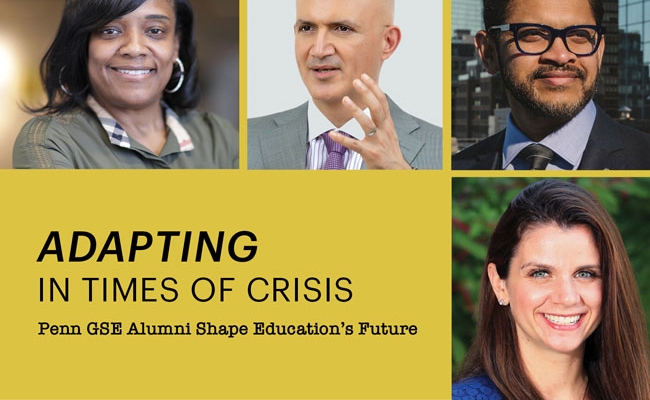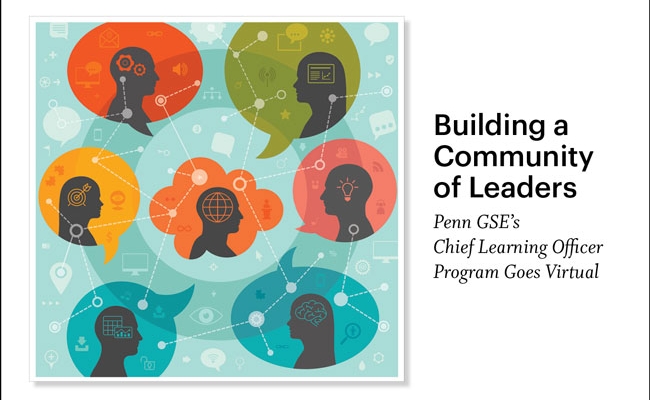The Penn GSE Magazine
Fall 2020
This online edition represents the content of the Fall 2020 hard copy issue that went to print on October 22, 2020.
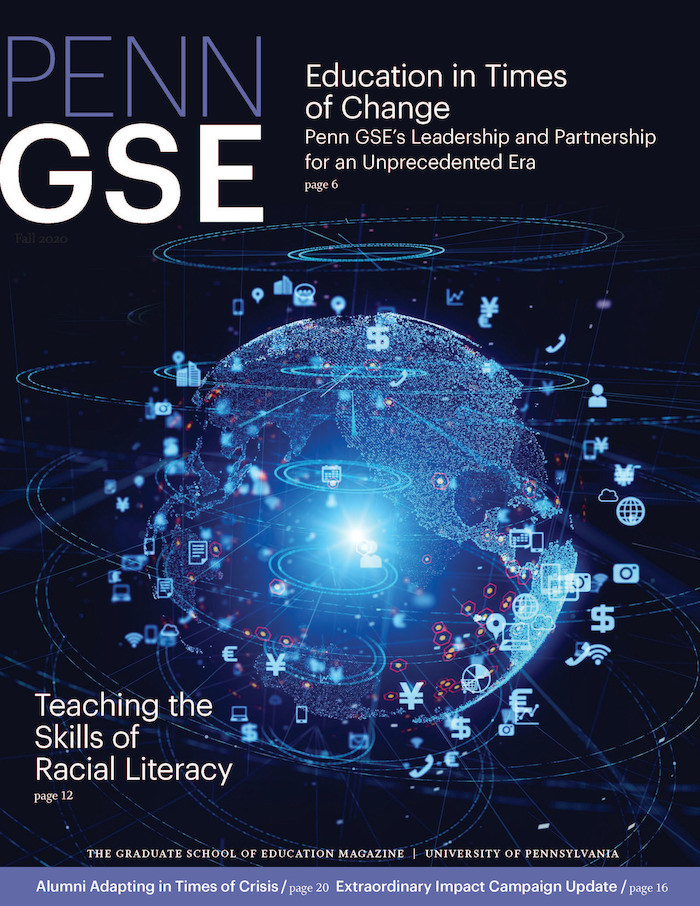
Cover image by iStock.com/metamorworks. Photos by Greg Benson Photography and Ryan Collerd.
Cover Story
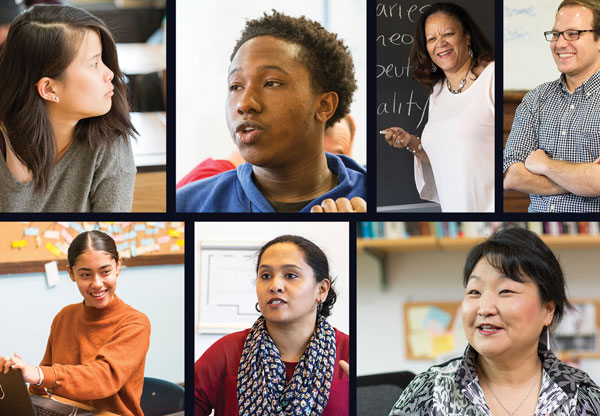
Education in Times of Change: Penn GSE’s Leadership and Partnership for an Unprecedented Era
Amid a global pandemic and perhaps the largest civil rights movement in U.S. history, Penn GSE is embracing the shift to virtual education, providing resources to educators and leaders in the field at large, and addressing issues of race, equity, and access throughout the School’s work.
Masthead
The Graduate School of Education, University of Pennsylvania
Board of Overseers
Douglas R. Korn, W’84
Deborah L. Ancona, C’76, GED’77
Brett H. Barth, W’93
Allison Jane Blitzer, C’91
Wallace Boston, GRD’10
Jolley Bruce Christman, GED’71, GR’87
Beth S. Ertel, W’88, WG’92
Jeffrey L. Goldberg, W’83, WG’89
Joel M. Greenblatt, W’79, WG’80
Wendy Marcus Greenfield, W’78
Andrew Harris Jacobson, WG’93
Marjie G. Katz, GED’90
Lois M. Kohn-Claar, C’88, GED’88
Gustave K. Lipman, W’94
Jeffrey S. McKibben, W’93
Gregory A. Milken, C’95
Matthew Vincent O’Malley, GED’95
Andrea Jill Pollack, C’83, L’87, GED’17
David N. Roberts, W’84
Francisco Jose Rodriguez, W’93
Molly P. Rouse-Terlevich, C’90, GED’00
Michael J. Sorrell, GRD’15
Navin M. Valrani, W’93, GED’18
Steven M. Wagshal, W’94
The Penn GSE Magazine is produced by the University of Pennsylvania Graduate School of Education, 3700 Walnut Street, Philadelphia, PA 19104-6216. Reproduction of these articles requires written permission from Penn GSE. ©2020 by the Trustees of the University of Pennsylvania. Please contact Penn GSE at 215-898-9704 for references. Please contact alumni@gse.upenn.edu to update your address.
Pam Grossman
Dean
Melissa R. Calvert, GED’00
Publisher
Juliana Rosati
Editor
Editorial Board:
Sara Cantwell
Jane L. Lindahl, GED’18
Jennifer Moore
Vanessa Rutigliano
Kat Stein
Design:
Print edition and web graphics by Ten Eleven Design
Web design by Penn GSE IT Web Team
UNIVERSITY OF PENNSYLVANIA NONDISCRIMINATION STATEMENT
The University of Pennsylvania values diversity and seeks talented students, faculty and staff from diverse backgrounds. The University of Pennsylvania does not discriminate on the basis of race, color, sex, sexual orientation, gender identity, religion, creed, national or ethnic origin, citizenship status, age, disability, veteran status or any other legally protected class status in the administration of its admissions, financial aid, educational or athletic programs, or other University-administered programs or in its employment practices. Questions or complaints regarding this policy should be directed to the Executive Director of the Office of Affirmative Action and Equal Opportunity Programs, Franklin Building, Suite 421, 3451 Walnut Street, Philadelphia, PA 19104-6206; or 215-898-6993 (Voice).
- [ Letter From the Dean ]
- [ News ]
- [ Features ]
- [ Noteworthy ]
- [ Recess ]
Letter from the Dean
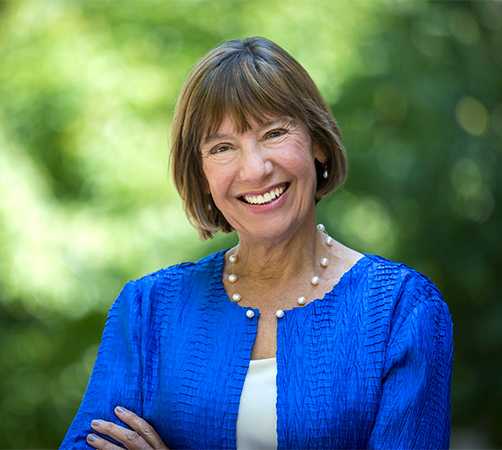
Dear Alumni and Friends,
I’m sure we can agree that 2020 has been a most unusual and challenging year, for education and the world. After massive school closures impacted more than 1.5 billion students around the globe, schools and colleges are navigating new modalities to provide virtual, in-person, and hybrid learning experiences for their students. As I write, our nation faces a presidential election under unprecedented circumstances, as we confront both a global pandemic and a historic movement for racial justice.
[[break-point]]
I’m so grateful for and proud of how our Penn GSE faculty, staff, and students have come together during this tumultuous time. Our cover story describes our work to address a complex landscape of virtual learning, uncertainty, heightened inequities, renewed calls to combat racism, and increased social and emotional needs. For Penn GSE, this has been a time of reaching out to help educators and leaders—through an array of professional development opportunities, two new projects funded by The Harold W. McGraw, Jr. Family Foundation, and our partnership with The School District of Philadelphia.
We have deepened our relationship with the District’s network of K–8 schools in West Philadelphia, led by Assistant Superintendent Rahshene Davis, GED’03, a current student in our Mid-Career Doctoral Program in Educational Leadership, who is highlighted in the feature “Adapting in Times of Crisis.” At her request, Penn GSE recently covered most of the cost to bring the virtual learning platform Nearpod to all thirteen network schools to improve learning, engagement, and equity. We have been delighted to support Davis’s leadership and to hear that her teachers are giving rave reviews of Nearpod.
We have also leveraged our strengths to adapt to our changing circumstances. Our rapid transition to virtual learning in the spring and continued success through the virtual summer and fall have been made possible by the expertise of faculty across the School. This fall, we welcomed the largest incoming class in Penn GSE’s history, 735 students, a tremendous milestone reflecting the dedication of our faculty and staff in a new landscape.
All of our faculty have spent time learning new tools and approaches to help create the kinds of interactive classes we conduct in person—and I am no exception! After four decades of teaching, I am leading my first online class this fall. I have been so grateful for the support and resources our faculty and staff have provided. Thanks to their efforts, I know how best to apply the latest technologies as I get to know our doctoral students, delve into texts, and build a learning community.
To address the need to confront systemic racial injustice in our country, we have undertaken a School-wide process of reflection among faculty, staff, and students, establishing new goals for our continued work in race, equity, and inclusion. Once again, our faculty and staff stepped up to help lead community meetings and our schoolwide discussions of Ibram X. Kendi’s book, How to Be an Anti-Racist. We are now engaged in a number of efforts that were identified in these community meetings, including preparing antiracist teachers, leaders, counselors, and researchers; ensuring that our community reflects the diversity of our city, our country, and our world; and ensuring that schools become places where students of color, and Black students in particular, can flourish.
These are indeed challenging times, but they are also times of hope. The work of our community and of educators around the globe has never been more urgent, and I draw inspiration from it each day. I hope you will do the same as you read the stories in this issue and explore the virtual resources highlighted in our cover story. Thank you for all that you are doing for education in these times of change.

Pam Grossman
Dean, Penn Graduate School of Education
George and Diane Weiss Professor of Education
Editor’s note: This issue of The Penn GSE Magazine went to print on October 22, 2020.
News
Bookshelf Spotlight
How We Talk about Language: Exploring Citizen Sociolinguistics
By Betsy Rymes
Published September 2020 by Cambridge University Press
This book explores everyday forms of language expertise as a way of understanding the relationship between language, culture, and society. Dr. Rymes offers tools to analyze how people talk about language and demonstrates that knowledge about language and its connection to social life is not primarily produced and spread by linguists or sociolinguists, or even language teachers. Rather, it is generated through everyday conversations, online arguments, music, art, memes, tweets, and more. Rymes is a professor in the Educational Linguistics division of Penn GSE.
Find other recent books by Penn GSE faculty in the Faculty Bookshelf.
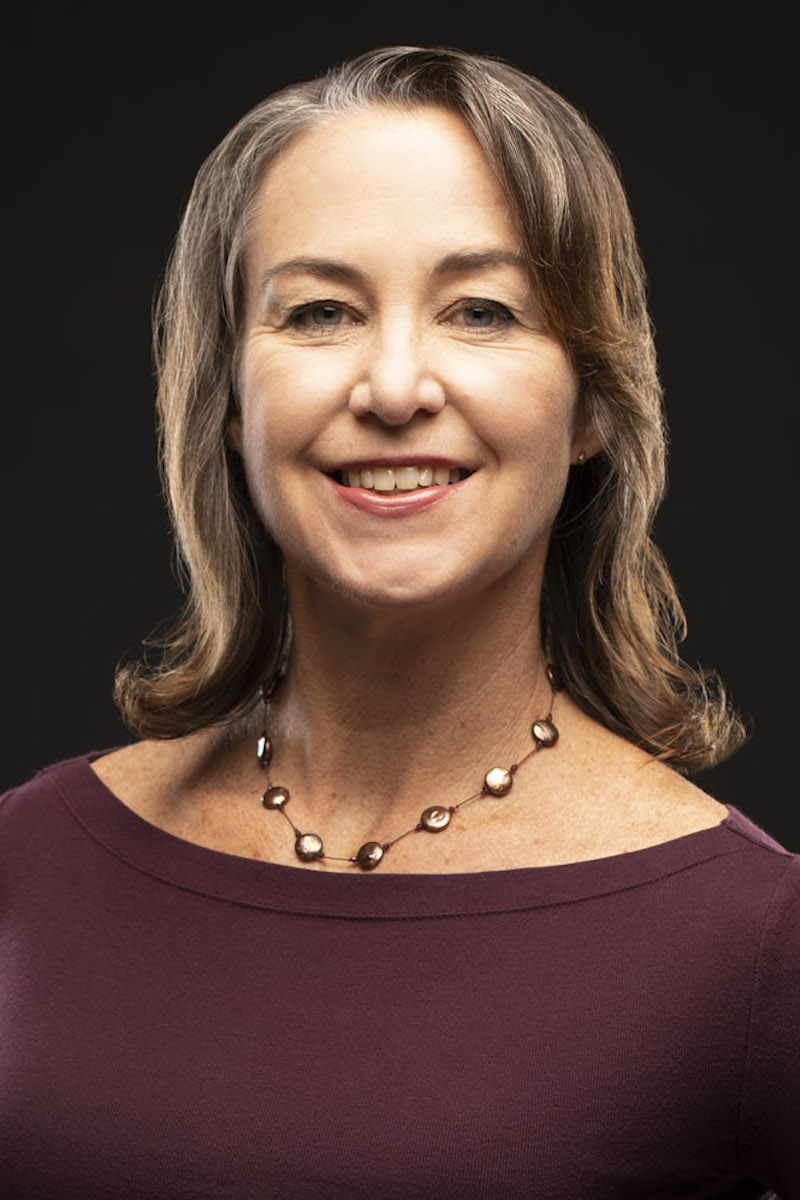
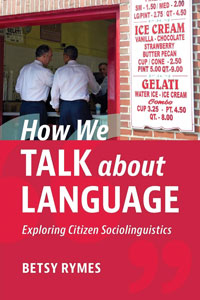
Newsroom Highlights
Read More News from Penn GSE:
Features
Noteworthy

Alumni Notes
Penn GSE alumni notes reveal the many ways our graduates are having an impact as educators and leaders.
Read Alumni NotesRecess
Tips from the Educator's Playbook

Teaching History Online Today
Abby Reisman says historical inquiry gives students a space to think deeply about the past and consider how it connects to and shapes the present.
Image by iStock.com/Anastasiia_New
Read More about Teaching History OnlineExtraordinary Impact Starts With You
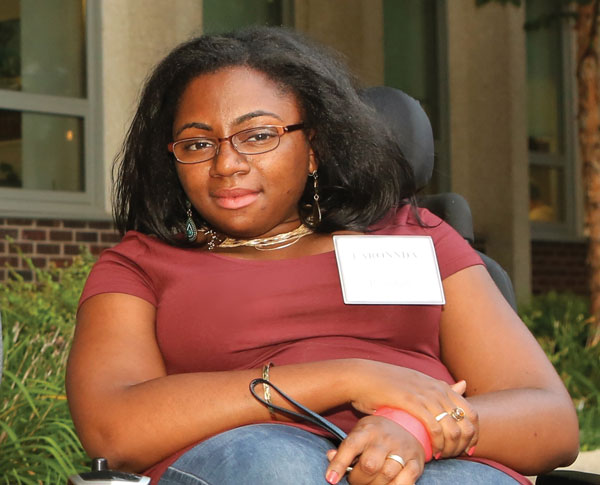
“I aspire toward a vibrant and dynamic scholarly career wherein I can promote healthy child development through the possibilities of education.”
— Laronnda Thompson, Ph.D. student in Interdisciplinary Studies in Human Development, recipient of the Gloria Twine Chisum Scholarship
Named scholarships and fellowships allow Penn GSE to attract the most talented students.
Learn More about Naming & EndowmentProfessional Learning
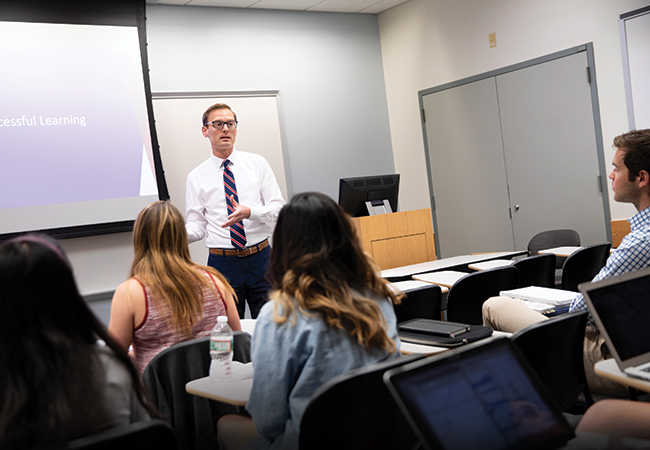
Deepen your knowledge. Build your network. Grow your career.
The Center for Professional Learning at Penn GSE provides professional development and continuing education opportunities for educators, entrepreneurs, leaders, and professionals across disciplines.
Learn More about Professional LearningPenn GSE Connects
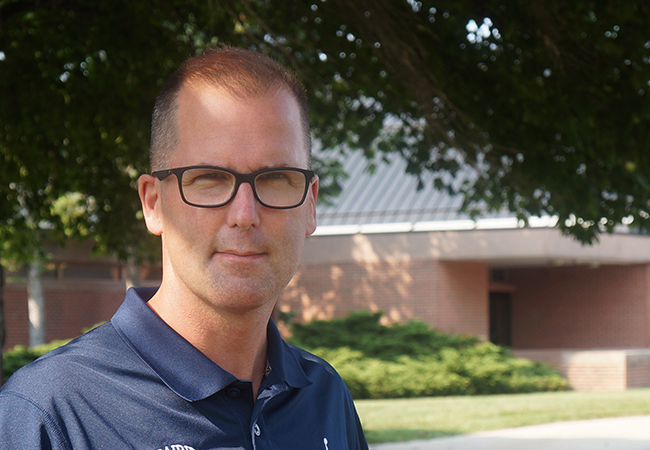
A Platform for Networking and More
“Today I have my dream job. I see mentoring others on Penn GSE Connects as my way of giving back.” —Nathaniel W. Coffman, GRD’12, Head of School and President, The Prairie School
Professional networking is more important than ever to navigate today’s job market. With Penn GSE Connects, Penn GSE students and alumni have an exclusive new platform to build professional relationships.
Sign Up for Penn GSE Connects
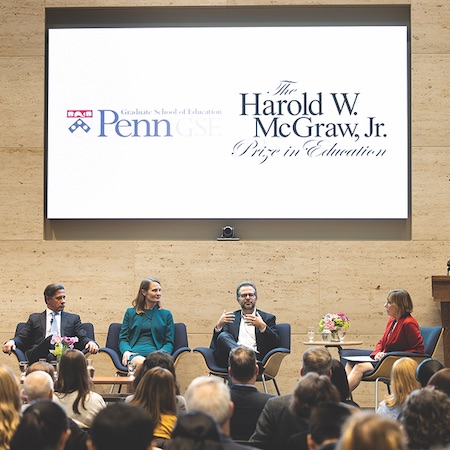
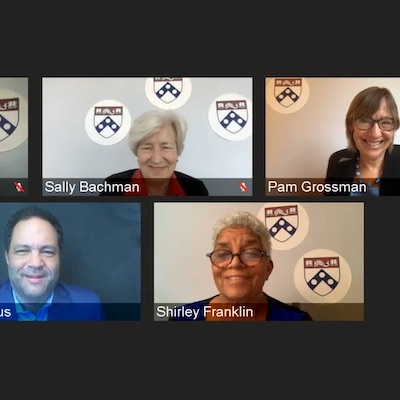
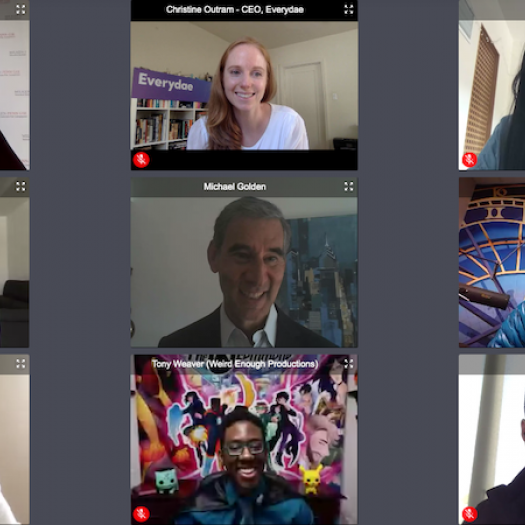

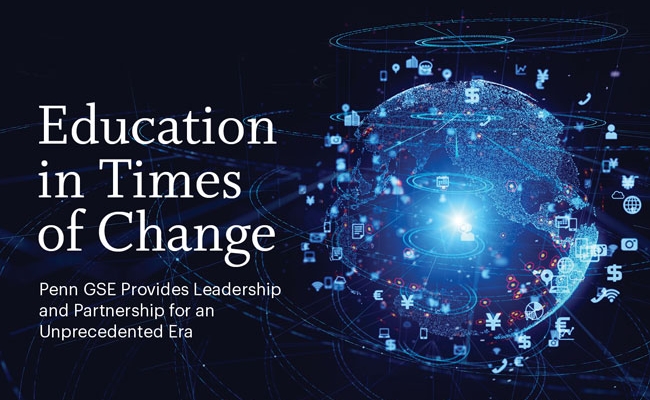
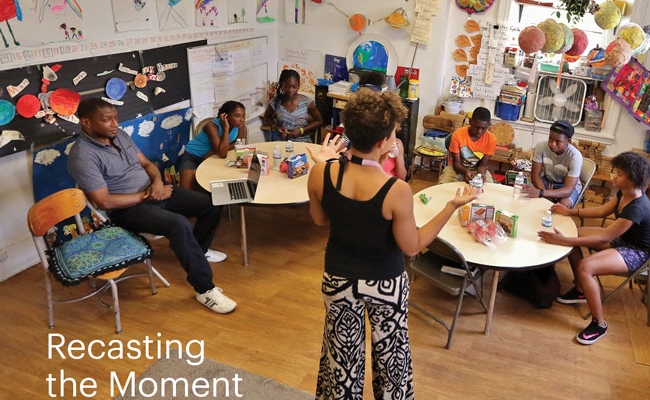
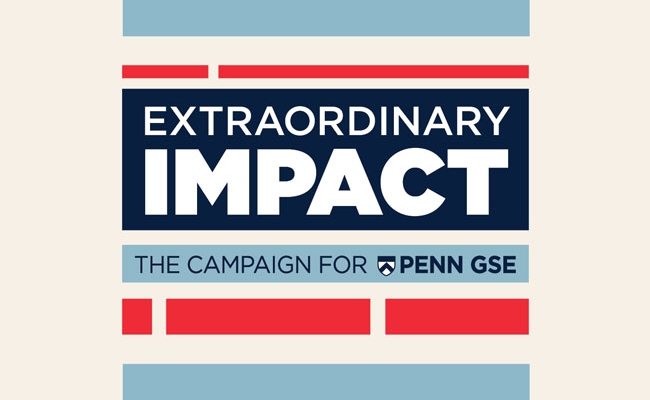
![Headshots of David Roberts (left) and Doug Korn (right) appear with a boxed headline that says “Harnessing the Power of Education.”]](https://www.gse.upenn.edu/sites/default/files/styles/card_display/public/penngse_board_transition_power_of_education.jpg?itok=qpnWBJnW)
![The headline “Celebrating Virtually” and red and blue pennants appear above screenshots of two event videos. The screenshot on the left says. “Join us for a virtual Alumni Weekend Saturday May 16. 2020.” The screenshot on the right shows Dean Grossman smiling above the words “Dean Pam Grossman of the Graduate School of Education.”]](https://www.gse.upenn.edu/sites/default/files/styles/card_display/public/penngse_celebrating_virtually_2020.jpg?itok=VD8ZhEQg)
